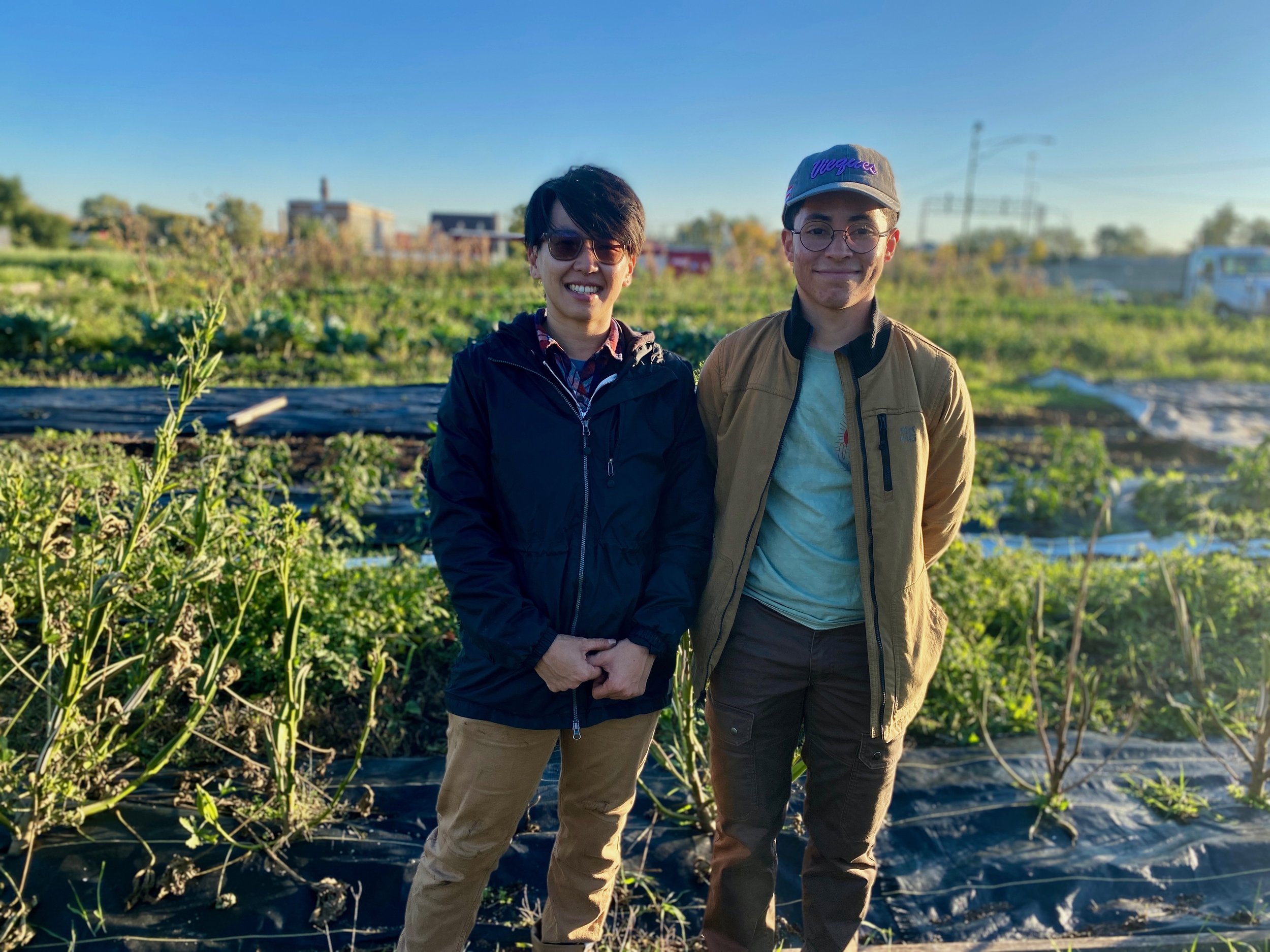
Grower Programs
Capacity Building Grant
The Capacity Building Grant is a grant fund housed by Advocates for Urban Agriculture in partnership with Food:Land:Opportunity (F.L.O.) and is model for community-led resource distribution. These funds support urban farms and community gardens to enrich the local food economy, production and distribution throughout the Chicago area.
Recipients are selected by an Advisory Committee composed of community residents who are past grantees, grower or supporters of earth stewardship.
[Image: Zafra Farm: Incubator farm in the South Side of Chicago owned and led by QTBIPOC growers]
Latest updates:
(11/22/24)
The 2024 Capacity Building Application deadline has been extended! See below for eligibility requirements, key documents, and information on how to apply by the new December 6th, 2024 deadline.
(10/21/24)
The 2024 Capacity Building Application is now open! See below for eligibility requirements, key documents, and information on how to apply by the November 29th, 2024 deadline.
(6/4/24)
The official announcement of 2024-2025 Capacity Building Grant award winners is below! 2024 grant cycle applications will be announced later in the fall of 2024. Join our newsletter below to stay in the loop for future updates.
✲
We’d love to support you! Learn more about how to apply below.
AUA is ready and committed to supporting growers like you to create a more just food future.
Please complete the following application and submit by 3pm CST on December 6th, 2024. Applications will be reviewed on a rolling basis by the grant review committee and recipients will be awarded funds by January 31st, 2025. Applications can be submitted via Google Form or via email in a document format of your choice. Both options can be found below.
If you have any questions about this grant application or require additional accommodations to complete an application, please contact Bea Fry at bea@auachicago.org.
Want a preview of the application or want to download a copy and submit via email? Click here for the English application and here for the Spanish application.
Keep scrolling for key information and applicant resources below!
Empowering Growers through Collective Grantmaking
[Image: Oscar Villa: Oscar Villa, Beekeeper Founder of Bee-utiful Honey & Candles]
-
The operation must be located in one of the following Illinois counties: Cook, Lake, McHenry, DuPage, Kane, Kendall, Grundy, Will, or Kankakee.
-
The fam or community garden must be at least one of the following:
less than 5 growing acres
Have an annual budget less than $250,000
-
The farm or community garden must have one of the following:
Focused on providing food for the local community, especially the grants three prioritized communities: Black, Indigenous, and people of color (BIPOC), trans, non-binary, gender non-conforming, and/or disabled communities.
Farms/community gardens that have developed strong partnerships with the local community.
Farms/community gardens that employ people from the community where they grow.
Farms/community gardens that have existing community partners and incorporate those partnerships into their project proposal.
Farms/community gardens that provide educational resources within their community.
Prioritizes partnerships with ‘historically underserved producers' as defined by the USDA.
-
The farm or community garden must be a legal entity or will be within a year. This can be For-profit, Non-profit, or DBA. This includes operations which are fiscally sponsored.
See below for a list of eligibility criteria.
The farm or community garden must meet all of the following requirements to be eligible to receive funds:
Foundational Documents
The continued evolution of the fund is grounded in a series of four documents. Co-created during conversations held among a group of growers in the region in 2019 and 2020, these documents have guided, and continue to guide, all future iterations of the grant program.
[Image: cohort of Capacity Building Grant co-creators]
Applicant resources
We want to make this process as supportive of growers as possible. We’ve curated a list of resources to aid applicants in their grant writing process and give you the confidence in the materials you submit for funding consideration.
-
The Preliminary Feedback Form supports applicants with grant writing assistance on their draft applicaiton materials. Submissions to the form will be reviewed, and feedback returned, on a rolling basis until the deadline on November 15th, 2024.
-
The Frequently Asked Questions (see here for Spanish language version) offers answers to common questions AUA has been asked about the granting process since the inception of the program.
-
The application guide (see here for the document in Spanish) serves as a roadmap to the main questions throughout the application, providing insights from the review committee on how best to answer application questions for clarity and to drive impact.
-
The 2024 virtual grant information presentation provides potential applicants with a broad-based overview of the grant, including: grant purpose, eligibility, resources, and includes questions asked by applicants in the past which are not included in the FAQ’s. The virtual presentation is here.
Dedicated to transparent processes.
See below for more information on the grant timeline, including award dates and resource deadlines.
10/21/24
Applications open
Preliminary Feedback Form opens
10/29/24
Virtual grant information session
11/15/24
Preliminary Feedback Form closes
12/6/24
Application closes
01/31/25
Latest date for award notification
Equal Opportunity Statement
AUA works affirmatively to foster inclusive programming and does not discriminate in the selection of participants on the basis of race, color, religion, sex, national origin, age, sexual orientation, disability, income, marital status, or any other dimension of identity. AUA strongly encourages applications from candidates and individuals with voices that have been historically under-represented in the food system, including but not limited to women, people of color, Black and Indigenous people.
While the focus is on the viability and scalability of urban farm businesses, home, school, or community gardeners are encouraged to work with us as well. For additional support in those areas, please see our Resource page for a comprehensive listing of applicable resources and local organizations.



